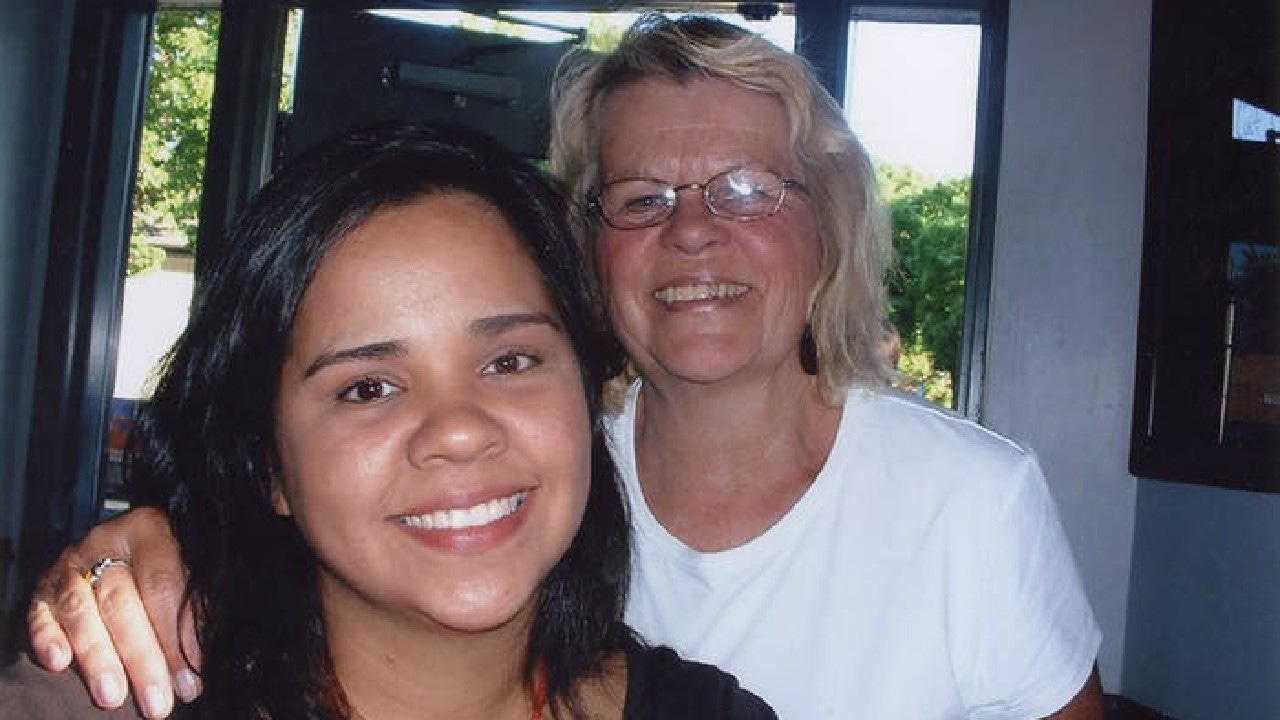Federal probe of Minneapolis Police includes questions about handling of newlywed’s death

Judy Hunt, right, was contacted by the U.S. Department of Justice in 2021 about the investigation into the death of her daughter, Elisa Gomez.
Before Minneapolis Police recently agreed to reopen their investigation into the death of newlywed Elisa Gomez, a federal law enforcement agency had already taken an interest in the six-year-old case.
A member of the U.S. Department of Justice called Judy Hunt, Gomez’s mother, in May 2021 as part of a wide-ranging investigation of MPD.
“He asked if he could interview me about Elisa’s case, and I said, ‘yes of course,’” Hunt said. “We talked for almost an hour.”
Emails confirm the call came about one month after U.S. Attorney General Merrick Garland announced his agency would look into whether MPD engaged in a “pattern or practice” of unconstitutional policing.
Over the course of her hour-long phone call with the DOJ, Hunt says she laid out the suspicious circumstances surrounding her daughter’s death just hours after a surprise wedding in October 2016.
Detectives had closed the case as an apparent suicide not long after Gomez’s new husband, Brad Alexander, told them he found the 47-year-old hanging from a rafter in the couple’s basement bedroom.
Alexander has never been named a suspect in the case.
An investigator with the Minnesota Department of Public Safety and its Office of Justice Programs issued a memo to MPD in 2019 urging the department to take another look at the case citing a lack of follow-up with witnesses and inconsistencies in their stories.
Minneapolis homicide investigators still declined to reopen the case until 5 INVESTIGATES started asking questions this summer.
“Our Minneapolis Police Department needs to step up and do what they need to do,” Hunt said.
Ex-girlfriend struggled to reach investigators
The family of Elisa Gomez and state investigators were not the only ones asking police to do more.
An ex-girlfriend of Alexander says she contacted Sgt. Twila Villella, one of the homicide detectives originally assigned to investigate Gomez’s death.
“It was disheartening because I had to track her down. I had to reach out to her multiple times,” said the woman who asked not to be identified. “I wanted to tell her, ‘you need to look into this guy. Why aren’t you?’”
In the 2019 memo from the state that identified numerous deficiencies in the department’s handling of Gomez’s death, investigators also cited Alexander’s “history of domestic abuse.”
Court records confirm Brad Alexander was convicted of domestic assault in 2010 for strangulation of his ex-wife.
His ex-girlfriend told police Alexander choked her, as well.
“He put his hands around my neck that night. And I was trying to scream for help,” the woman said.
But she says she struggled to get that information to those working the Gomez case.
“I wouldn’t say it was ‘phone tag.’ I called her, I’d say, two or three times over the span of a week. The last time I got a hold of her, she seemed like she was annoyed with me. She said she was doing patrol.”
The detective later included a reference to the ex-girlfriend in one paragraph of a supplement to the police report.
“The phone number was incorrect, and the statement she said I gave was not worded even close to the point I was trying to get across,” the woman said.
Villella, who is no longer with MPD, could not be reached for comment.
Brad Alexander denied any involvement in Gomez’s death when police interviewed him in 2016.
When 5 INVESTIGATES contacted Alexander by phone last month, he again denied any involvement in Gomez’s death.
“They’re looking at everything they can”
Judy Hunt says the call she got from the DOJ last year came with an important disclaimer from the assistant U.S. Attorney who spoke with her.
“He said, ‘I wish I could do something for you, but we are here to investigate the police,’” Hunt said. “They were not going to look into Elisa’s case or do anything, they just wanted to hear cases.”
Erica MacDonald, a former U.S. Attorney and district court judge, says Elisa Gomez is not likely to be mentioned by name in the DOJ’s final report, but the fact that her case is among those being reviewed is significant.
“A six-year-old case? Yes, I was surprised, but I’m glad to know,” MacDonald said. “What the community should feel good about is that a very thorough investigation is being done. They’re looking at everything they can, from every angle they can.”
The DOJ says its investigation is still ongoing. This month federal investigators told the Minneapolis Civil Rights Commission they had not yet made any findings.
MacDonald says she expects the DOJ investigation of MPD to be complete before the end of the year.
“I expect that this time there will be recommendations as to what we can do to reform law enforcement so that it’s acting lawfully, that it’s responding to the community,” MacDonald said.
The Minnesota Department of Human Rights issued its own recommendations in April after a similar review of Minneapolis Police following the murder of George Floyd.
Emails confirm Elisa Gomez’s mother, Judy Hunt, was among the 2,200 community members MDHR says it interviewed about their experiences with MPD.
But Hunt says the pursuit of justice for her daughter does not end there.
A Minneapolis Police spokesperson would only say the department’s new investigation into Gomez’s death remains open and ongoing.
“It’s not just Elisa’s case, there are many cases like hers,” Hunt said. “It’s time for the police to step up and grant justice to these poor families.”